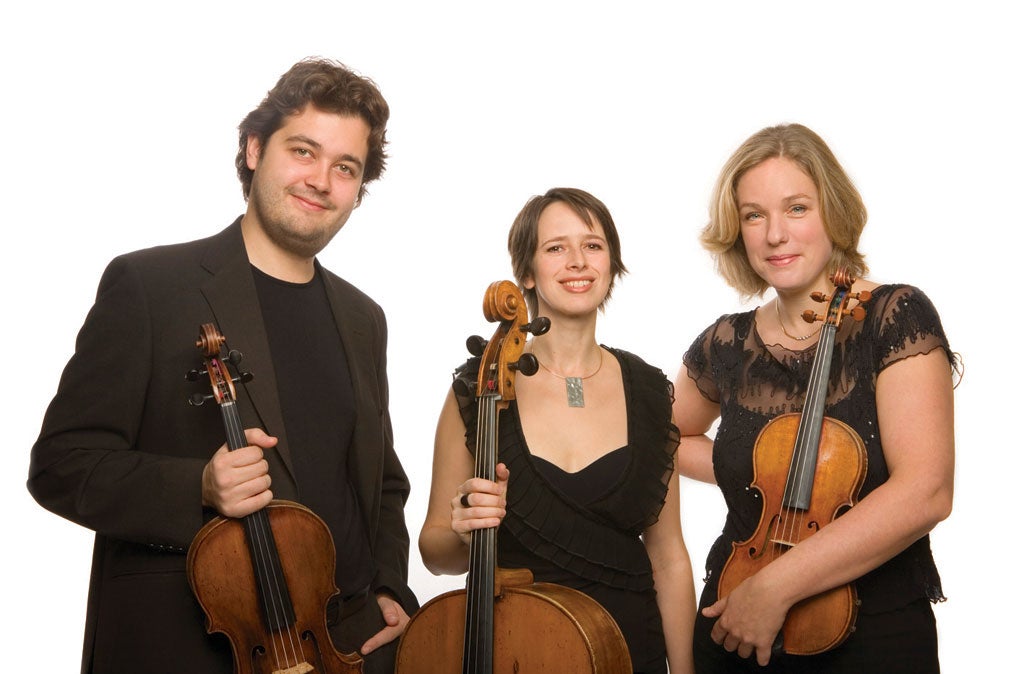Leopold Trio/Steven Osborne/Pavel Haas Quartet, Wigmore hall, London

Classical music’s talent-spotting schemes don’t always work - as witness the fortysomethings desperately trying to recreate their brief fame as 'BBC young musician of the year' - but Radio 3's New Generation Artist scheme is an exception. Successive concerts by two NGA ensembles this week reinforced the point that this title is a copper-bottomed accolade.
First came the Leopold String Trio with pianist Steven Osborne, in a programme devised both for instrumental democracy and to suggest a musical correspondence seldom remarked on.
If you did not know that Schubert’s unfinished String Trio in B flat D 471 was by him, you would almost certainly have said it was by Mozart, who had died 15 years before its composition. In its textures, tightness of structure, and the way the spring-heeled energy of the upper strings was grounded by the luxuriant warmth of the cello, it came across at moments like quintessential Mozart.
But before their Mozartian piece de resistance, the Leopolds plus the excellent Osborne gave us Faure’s seldom-performed Piano Quartet in G minor: a work of overpowering intensity brilliantly delivered by violinist Isabelle van Keulen, violist Lawrence Power, and cellist Kate Gould.
Then came Mozart’s late string-trio Divertimento in E flat K563, the first major work of its kind, and unequalled until Schoenberg’s String Trio a century and a half later. Its six movements covered a gamut of emotions and ranged into remote tonal regions, with the ghostly cantus firmus coming across like viol music from a much earlier time; superbly played.
Named after a member of the lost generation of Jewish composers gassed by the Nazis after incarceration in Theresienstadt, the Pavel Haas Quartet has ploughed an admirable furrow with its recordings of Dvorak and Prokofiev, and with Smetana and Janacek at the Wigmore they were again on home territory.
Their account of Janacek’s "Intimate letters" quartet cleverly reflected the fact that it’s all sublimated sex, with a nice balance struck between coarse energy and wispy harmonics in the first movement, and a third movement of jagged magnificence. Smetana’s "From my life" quartet emerged with a finely sculpted opening movement, a light-hearted ‘alla polka’ second, a Largo exuding a nostalgic glow, and the famous finale – in which a long fiddle high note presages deafness - delivered with masterly understatement.
Join our commenting forum
Join thought-provoking conversations, follow other Independent readers and see their replies
Comments
Bookmark popover
Removed from bookmarks